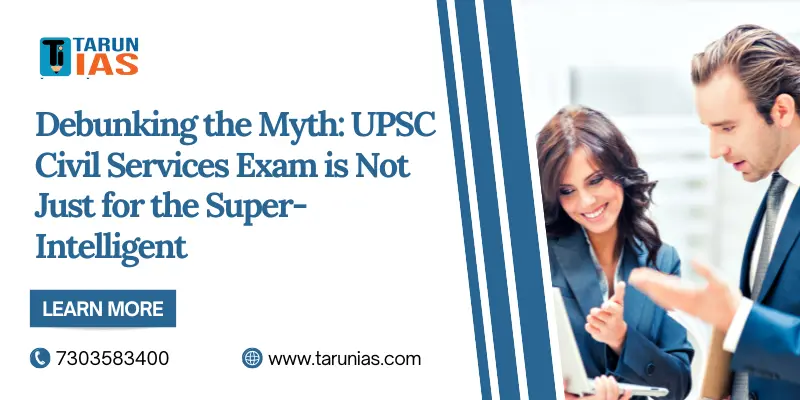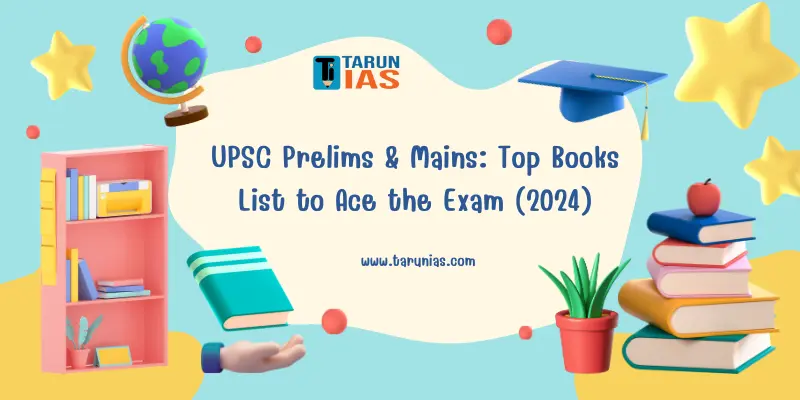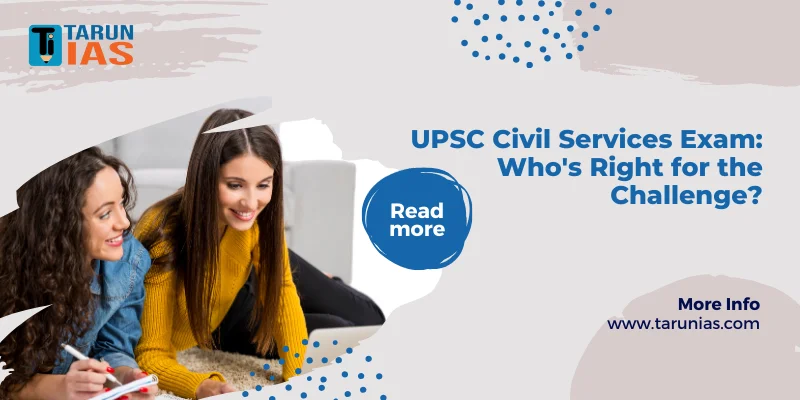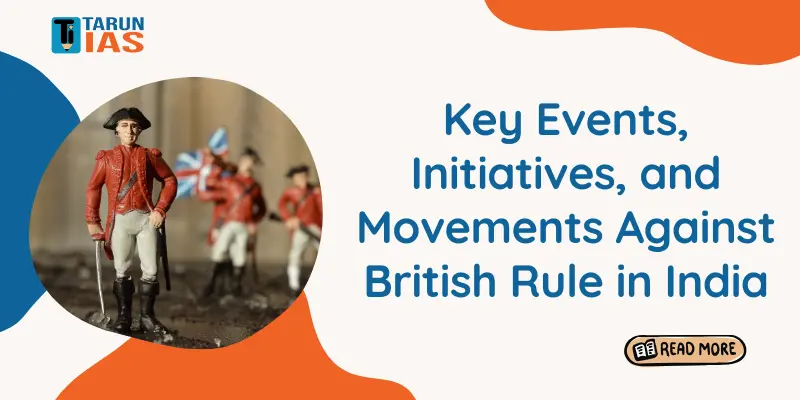The UPSC Civil Services Examination, often hailed as one of the toughest exams in the world, is a gateway to prestigious administrative positions in the Indian government. However, there exists a pervasive misconception that success in this exam is solely reserved for the intellectually gifted. Contrary to this belief, the journey to cracking the UPSC exam is not just about intelligence but encompasses a blend of dedication, perseverance, and hard work.
- The UPSC exam, conducted by the Union Public Service Commission, is indeed a test of one’s knowledge, analytical skills, and decision-making abilities. Yet, it is not an exclusive domain for the exceptionally intelligent. Numerous examples from past successful candidates testify that it’s more about the quality of preparation and the right mindset rather than innate intelligence.
- Vivek Kumar, who got into IRS in his 5th attempt, emphasizes the paramount importance of dedication. He highlights that every topper was once a beginner, and their success stems from relentless dedication and consistent efforts. Kumar challenges the notion that success is solely attributed to quick learning or solving complex problems effortlessly. Instead, he attributes success to revising materials meticulously and consistent practice.
| Not just for the elusive “average” students, I think UPSC is for the “below average” as well. I, for one, failed in Class XII when I had science stream and repeated XII with arts in Hindi medium. So I can rightly call myself below average. I then graduated with English literature and got into IRS in my 5th attempt. I hope that settles the matter. What matters is the zeal, the quality study time you put in, initial guidance and minimizing distractions. The first step in preparation is to bury the past – anything that makes you under- or over-confident.
Vivek Kumar, IRS |
- Further debunking the myth, Dr. D D Rishi, a former IRS officer with over 38 years of experience, asserts that most civil servants are of average or just above average intelligence. He suggests that exceptionally intelligent individuals often seek intellectually challenging careers, whereas civil service may not always provide the same level of stimulation. Rishi’s insight sheds light on the fact that success in the UPSC exam is not contingent upon exceptional brilliance but rather on the ability to adapt and excel in diverse situations.
- Similarly, the journey of C. A. Rishab, an IAS officer, is a testament to the fallacy of associating UPSC success solely with academic brilliance. Rishab candidly shares his academic struggles, including failures and backlogs, yet emerged victorious through sheer determination and hard work. His story underscores the importance of perseverance and self-belief in achieving one’s goals, regardless of past academic records.
| I failed for the first time in a subject in my tenth standard. During my twelfth I had heard of AIEEE but not IIT JEE. I had no idea that IIT’s even exists. Got admission in a college in Chennai due to someone’s recommendation in Electronics and Communication Engineering. I had 4 backlogs in my Fourth semester. I failed in UPSC Mains twice (2016, 2017). In 2018, got AIR 23. UPSC was the first competitive exam that I had ever attempted. I had pushed back IITians, IIM grads, US grads etc. to come to this place. For this I had put a lot of hardwork. Believe in yourself and work hard.
C. A. Rishab, IAS, Batch of 2018 |
- Meet Ashish Thakur, IPS, a prime example of transcending conventional academic expectations. Despite his modest academic record, with 68% in 10th grade and 62% in 12th grade, Ashish pursued his education in government schools, exclusively in Hindi medium. He didn’t have the privilege of a lavish educational environment, attending a government college where attendance was only mandatory during examinations.
- However, his journey defies the odds. In the Civil Services Examination of 2018, he secured an impressive All India Rank of 346. Not stopping there, he also excelled in various other government job exams including Bank PO and SSC CGL.
- Ashish’s story is a testament to the power of dreams, determination, and hard work. Despite not fitting the mold of conventional success, he never let go of his aspirations. He challenges the notion of average being a limitation, emphasizing the importance of dreaming big, refining one’s skills, and relentless effort. His message resonates not just in the realm of UPSC exams but in the broader spectrum of life’s endeavors.
Read also: UPSC Civil Services Exam: Who’s Right for the Challenge?
| Average is a myth. Dream big. Hone your skills. Work hard. You are bound to achieve greater height…IN UPSC…IN LIFE.
Ashish Thakur, IPS, Batch of 2018 |
- Debotosh Chatterjee, an IRS officer, resonates with the narrative of being an average student and finding success through dedication and perseverance. He emphasizes that being average in certain areas does not equate to failure but rather underscores the importance of aligning one’s strengths and passions with their goals.
I have always considered myself to be an average student in many ways. I always knew that I had no special talent or skills. However, I just wanted to be at peace with myself on daily basis. I loved writing. I loved reading certain things. When I combined these two, I found UPSC CSE to be a worthy shot.
Debotosh Chatterjee, IRS (C&CE), Batch of 2016 |
- Meet Ratan Deep Gupta, IRTS 2017 batch, a shining example of perseverance and determination in the face of academic challenges. Throughout his schooling, Ratan’s academic journey was characterized by average and sometimes below-average performance. Here’s a glimpse at his marks: 66% in 10th grade, 51% in 12th grade, and a modest 59% in BA followed by 48% in MA, all achieved in Hindi medium through the UP board.
- But it wasn’t just about the marks. Ratan attended a government school where individual attention was scarce. In fact, he didn’t even know the path to becoming an engineer until his 12th grade. Despite the lack of guidance from a well-educated family member, Ratan didn’t let his circumstances define his destiny.
- After graduation, he embarked on a journey of self-improvement. He began by mastering English and then set his sights on banking exams. His success in the SBI clerical exam fueled his determination, leading to three consecutive qualifications in the SSC exams.
- Finally, Ratan set his sights on the UPSC exam, a monumental challenge. Through hard work and unwavering commitment, he achieved his goal, securing a position in the Indian Railway Traffic Service in 2017.
- Ratan’s journey teaches us a valuable lesson: greatness is not inherent in individuals but is instead revealed through the challenges they confront. His story is a testament to the power of persistence and grit in overcoming adversity and achieving remarkable success.
| What I have learnt from UPSC preparation is,
“ There are no great people in this world, only great challenges which ordinary people rise to meet.” Ratan Deep Gupta, IRTS, Batch of 2017 |
- Allow me to share the inspiring journey of Kamaljit K Kamal, hailing from a small town in Banka, Bihar. His introduction to the world of computers came as late as Class X in the year 1999, highlighting the humble beginnings of his technological literacy.
- He secured 71% marks in both SSC and +2 exams, and while his B.Com. result placed him in the third division with 44.53%.
- In his pursuit of becoming a Chartered Accountant (CA), Kamaljit faced failures, having failed twice in the final exam.
- However, his story takes a triumphant turn with his success in the Civil Services Examination of 2012, following a setback in the 2008 attempt. What propelled Kamaljit to achieve such a feat amidst adversity? His commitment to staying informed about global events, maintaining an open-minded perspective, and an insatiable thirst for knowledge played pivotal roles.
- Kamaljit’s narrative serves as a beacon of hope, showcasing that success is not confined by academic accolades or initial setbacks. Rather, it is fueled by an unyielding spirit of learning, adaptability, and a steadfast determination to persevere against all odds.
- Allow me to share the inspiring journey of Kamaljit K Kamal, hailing from a small town in Banka, Bihar. His introduction to the world of computers came as late as Class X in the year 1999, highlighting the humble beginnings of his technological literacy.
- Despite facing numerous challenges, Kamaljit’s academic journey reflects resilience and determination. He secured 71% marks in both SSC and +2 exams, and while his B.Com. result placed him in the third division with 44.53%, he never let setbacks define his aspirations. Remarkably, he didn’t attend college, yet pursued his ambitions relentlessly.
- In his pursuit of becoming a Chartered Accountant (CA), Kamaljit faced failures, having failed twice in the final exam. Job interviews also presented more rejection than acceptance, testing his resolve time and again.
- However, his story takes a triumphant turn with his success in the Civil Services Examination of 2012.
| When I met other candidates from my batch, I found people who are so called average, many. Marks and certificates and opinions of people do not decide if you are good or not.
Kamaljit K Kamal, IRS, Batch of 2012 |
- In conclusion, the myth that the UPSC Civil Services Exam is exclusively for the super-intelligent is debunked by the narratives of individuals who have successfully cleared the exam through dedication, hard work, and perseverance. These stories highlight that success in the UPSC exam is not predetermined by one’s intelligence quotient but by the relentless pursuit of excellence and the unwavering belief in one’s capabilities. The civil services demand more than just academic prowess; they require individuals with high emotional intelligence and exceptional people skills. Aspiring candidates should take inspiration from these narratives and approach the UPSC exam with diligence, dedication, and self-belief, knowing that intelligence alone does not guarantee success, but consistent effort does.





